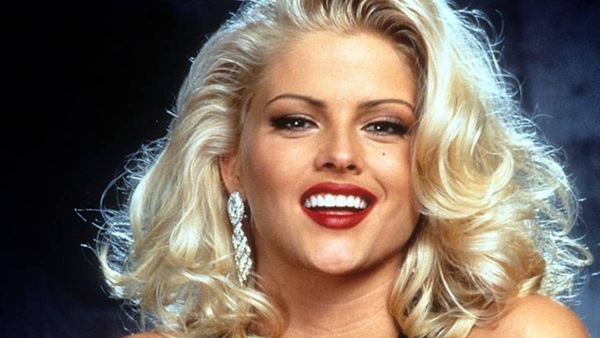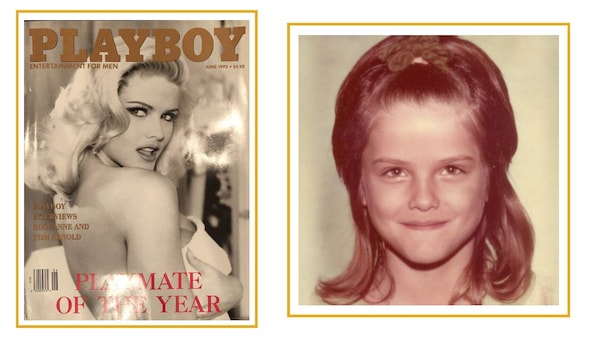Newsletter | Netflix's Anna Nicole Smith Docu Bares Nothing We Didn't Know
A new wave of documentaries has sought to reexamine the vicious scrutiny famous women are subjected to. Sadly, Netflix's Anna Nicole Smith feature doesn't rise to the occasion, writes Joshua Muyiwa.

Last Updated: 11.25 AM, May 23, 2023
THERE is an emerging wave of documentary films that is getting all of us to revisit, revise and review tabloid culture from the early-aughts. (Although the benchmark for paparazzi across the world still continues to be casual misogyny and the hypersexualisation of female bodies.) These documentaries seek to set the record straight on the objectification, commodification and misrepresentation of these celebrity women from their heydays, and retell their stories with thoughtful nuance.
As part of this wave,, there have been two-too-many Britney Spears documentaries that interrogated her cruel conservatorship. Paris Hilton’s memoir followed by the documentary introduced us to her real voice and even peeled back a layer to show us both: the character and the candyfloss. Jessica Simpson published a memoir that tugged at our heartstrings and spoke to the viciousness of the media’s attacks on her. Pamela Anderson finally addressed the backlash to her sex tape with former husband Motley Crue’s Tommy Lee. And artificial intelligence allowed us to hear Marilyn Monroe tell her story in her own words.
These are just a few of the examples of this wave that’s feeding our growing, insatiable hunger for context and clarity that our contemporary culture demands of us all — even our celebrities. They also act as vehicles for these women to be at the centre of their stories and their telling, not be the surgically examined objects alone. The latest offering in this wave is Anna Nicole Smith: You Don’t Know Me, a new Netflix documentary directed by Ursula Macfarlane. Ironically, we don’t know her at all even at the end of this nearly two-hour documentary.
If you are wondering who Anna Nicole Smith is, she was a multi-hyphenate before the punctuated concept coolly appeared on social media influencer bios. She started her modelling career in the prime real-estate of Playboy’s centrefold in 1992, and was declared Playmate of the Year in 1993. She replaced Claudia Schiffer as the brand ambassador for Guess Jeans. She was an actor. She was a sex symbol. She was an early reality television star. She was the original famous-for-being-famous brand of celebrity. In the early-aughts at the height of tabloid mania, she was the perfect byte: blonde, bubbly, beautiful.

As if all that wasn’t enough, she also had a great origin story and was living the American Dream. She was from Mexia, a small-town in Texas, and got famous for her looks. From a teenage pregnancy to working in topless bars, she went on to romance and marry an octogenarian oil billionaire; then got embroiled in an inheritance lawsuit when he passed away at 90. Her20-year-old son accidentally overdosed in the Bahamas, where she had just given birth to her daughter. This resulted in a paternity case involving many suitors (including Zsa Zsa Gabor’s husband) who claimed to be the baby’s father. And all this before Anna Nicole Smith died from an accidental drug overdose in 2007, aged 39.
Just like the two above jam-packed paragraphs listing out her professional and personal milestones, Netflix’s documentary does nothing but the same. It has a similar quality as the roundup segment on a news channel. But this one is artsy in its editing: stringing together behind-the-scenes footage of her glamorous photoshoots; shaky paparazzi footage of her entering and exiting restaurants and cars in Los Angeles; grainy home video footage voiced-over by recorded phone conversations; witch-hunt interviews and shocking cultural commentary. There’s even the news video of a crowd goggling at her dead body being wheeled into an ambulance. Everything about this documentary is lazy, lurid and lecherous. It doesn’t rescue Anna Nicole Smith, the person; rather, it recycles her well-documented image to make bank off of it. There isn’t a single sliver of tenderness in the entire film.
It isn’t just the footage that fails in Anna Nicole Smith: You Don’t Know Me. The featured interviews with her brother, half-brother, a close friend called Missy, a Playboy photo editor, a personal assistant, her personal couturier and his husband, her lawyer lover’s sister, her first attorney, her bodyguard, a reality television personality who was also ‘her friend’, tabloid journalist and a paparazzo, are also all terrible. Each one of them tells the story of Smith’s life with themselves as the main character. These are self-serving stories delivered in a bogus manner. Honestly, it feels like even they hadn’t been allowed to get to know the real Anna Nicole Smith either. Each utterance comes off as a tabloid’s clickbait headline, feeding the persona instead of fleshing out the person.
It is sad that the documentary doesn’t help Anna Nicole Smith escape her public, photographed and published image. Instead, it employs those very products to paint a recycled picture of her. No wonder then, that it turns out to be more of the same. It reminds us of the horrible, horrible way in which we treated (treat?) women. The ways we watch them: praising their perfection and skinning them for their silliness, remaining hyper-focused on their failings and flaws. Anna Nicole Smith: You Don’t Know Me feeds that base side of ourselves. Why are we relentlessly digging up these dead women from the past? Let us learn from our past errors without disturbing them. We should simply have let Anna Nicole Smith rest in peace.
